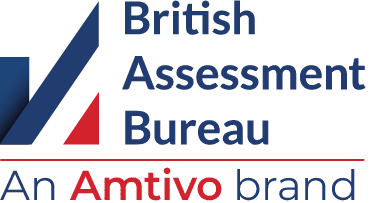Your Route to £4.1 Billion in Government-Backed Retrofit Opportunities
What if the key to accessing government-funded retrofit projects was meeting clear, recognised installation standards? With many businesses facing workforce challenges, Trustmark’s ‘Skilled To Build Report’ says certified installers are better positioned to meet funding requirements and deliver trusted retrofit services – giving PAS 2030-certified installers, considerable benefits.
PAS 2030 Certification Benefits: Why It Helps Unlock Access To Retrofit Opportunities Others May Miss
PAS 2030 certification isn’t just a piece of paper; it can unlock the most profitable retrofit work available to your business through:
- Eligibility for ECO4 schemes: Government-backed funding worth millions, only available to certified installers
- Competitive advantage: Stand out while 45% of businesses struggle with unfilled vacancies
- Customer confidence: Homeowners increasingly demand certified installers for quality assurance
- Future-proofing: Align your business with forecasted government investment programmes valued at up to £4.1 billion.
Source of information: TrustMark Skilled to Build Report.
The Numbers Tell the Story: Massive Opportunity in a Changing Industry Landscape
Recent TrustMark research reveals the scale of opportunity. These insights include:
The challenge creating your opportunity:
- 39,000 businesses could leave the Repair, Maintenance and Improvement (RMI) sector in the next decade
- 45% of businesses report unfilled vacancies
- Fragmented training, complex recruitment, and low sector visibility persist
These challenges have been linked to factors such as an ageing workforce, limited formalised entry routes for new installers, and a need for greater clarity around scheme requirements and quality standards.
The prize for those who stay ahead:
- Up to 195,000 additional skilled roles could be created
- £4.1 billion in additional gross value-added potential
Why Government Policy Is Driving Retrofit Demand
As stated in the TrustMark research, government policy is accelerating support for certified retrofit delivery as part of the UK’s net zero strategy – making certified competence increasingly important in funded programmes – with residential buildings accounting for 13-14% of UK emissions and building sector emissions up 2% in 2024, government investment in certified retrofit delivery is accelerating.
What PAS 2030 Certification Covers
PAS 2030 defines requirements for organisations installing energy efficiency measures. It covers the areas that matter most to customers and funding bodies:
- Installer competence: Demonstrable skills and knowledge
- Technical installation procedures: Consistent, quality delivery
- Quality control: Auditable processes that build trust
- Customer service standards: Professional service that generates referrals
How to Become an ECO4 Installer
To work under the ECO4 scheme, most installers need PAS 2030 certification and TrustMark registration. Projects typically target homes with EPC ratings of D to G, where residents meet income-based eligibility criteria. Businesses often use compliant methods to identify suitable customers.
For a full overview of what it means for installers, requirements, funding, and the role of PAS 2030, read our full guide.
Your Path to Certification
British Assessment Bureau is a UKAS-accredited certification body that audits organisations against PAS 2030 requirements and certifies those that meet the standard.
Certification with British Assessment Bureau supports eligibility for schemes such as ECO4 and other government-backed programmes, subject to meeting the relevant criteria
Could PAS 2030 Certification Be Your Next Competitive Advantage?
With government funding increasingly linked to certification, now is the time to explore how PAS 2030 can strengthen your retrofit credentials – and help you stay ahead in a rapidly evolving market.
Find out more about PAS 2030 certification.


